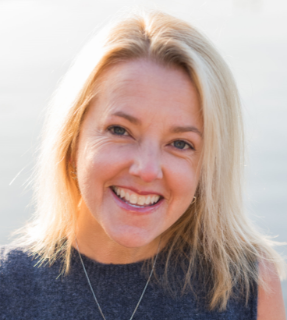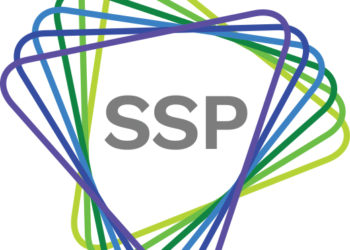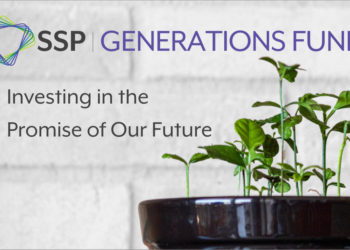Editor’s Note: Today’s post is by Jennifer Regala. Jennifer is the Director of Publications/Executive Editor at the American Urological Association, which publishes The Journal of Urology and Urology Practice. Until June 2020, Jennifer was the Managing Editor of the journals The Plant Cell and Plant Physiology at the American Society of Plant Biologists. Before working at ASPB, Jennifer was a Publishing Services Group Leader at Sheridan Journal Services, overseeing accounts including ASPB, the American Society of Hematologists, the Endocrine Society, and the American Society for Pharmacology and Experimental Therapeutics. She began her career in scholarly publishing at Cadmus Journal Services (now Cenveo) as a Journal Production Editor.
I just can’t stop thinking about it. The “R” word. I think about it so much that my coworkers are probably sick of hearing me say “relevance”. Just the same, I can’t stop-won’t stop. My job is to keep the American Urological Association’s publishing program not only successful, but relevant, and I love every single second of it. I work for the best organization with strong publications, and those truths make it easy for me to come to work. What I struggle with more, though, is how do I, as an individual, continue to stay relevant and important in this field? And even more important to me, how can I help my department’s staff, my Society for Scholarly Publishing (SSP) mentee, and those who work for other organizations do the same?
And speaking of the “R” word, we have this same laser focus on relevance in all of the professional volunteer work I do. As the co-chair of SSP-DC Regional Subcommittee, our committee is tasked with coming up with engaging and interesting topics for our Washington, DC-area colleagues to learn about and discuss. Pre-pandemic, this job was almost too easy. We would find a venue (usually someone had a hookup with a society or university with a great meeting room at the right cost, i.e., free), some speakers, and plan a great happy hour for after the event, et voila. The ideas flowed easily, and we packed every room. Now, in the days of pivoting, silver linings, and COVID fatigue, events are a bit harder to plan, but our DC group remains more committed than we have ever been to keeping our DC colleagues connected and informed. We have come up with a formula that seems to work: invited conversationalists on a specific topic, the understanding that participants should BYOB depending on time of day and preference, and plenty of planned questions and get-to-know-each-other exercises to make our events flow.

In one of our brainstorming events, the DC committee came up with the idea for our December 3rd event, “Staying Relevant in an Ever-Changing Scholarly Publishing Landscape: How Real Life Professionals Made Themselves Key to Their Organization’s Success” (shameless plug to please register, and you don’t have to live anywhere near DC to attend, which is a clear pandemic silver lining). I am really excited about the thinking that went into this event. We plan to focus on individuals who were hired to perform a certain role that has evolved to become so much more. From the event’s description:
Scholarly publishing fundamentals like peer review, quality and serving specific communities stay the same, but the way we do the work is constantly evolving. Meet with career professionals who have morphed their own roles within their organizations to stay relevant and critical to their organizations. Paige Wooden and Stacey Burke (APS) were hired to perform specific tasks and have identified ways to add to their job descriptions to increase their significance to their organization, including learning data analytics tools to create unique and timely reports, learning how to navigate and execute read-and-publish and other novel publishing agreements, and more. Learn more about how they were able to pivot and their tips on how you can do the same.
But WHY am I so passionate about this topic? I believe that rapid changes in scholarly publishing have forced professionals in our field to stay relevant as individuals or risk elimination of their roles. Add our pandemic crisis as an accelerant, and it is clear that it is very challenging to keep up. Increasingly, I look around me and see “Peer Review Managers” and “Managing Editors” and “Librarians” and so many more who have all pivoted to become far more than the confines of their titles suggest. On the other hand, there are countless wonderful folks in our field who have worked hard and put in their time, but they failed to see the threats to our industry and to their own livelihood.
Like many journalism majors who were supposed to be Katie Couric’s replacement on The Today Show but didn’t quite get there, I was looking around for that perfect job. Thank goodness for that fateful ad in the newspaper pointing me to Cadmus Journal Services, who was hiring Production Editors. That sounded interesting enough, and after I passed the editing test and did well on the interview (“data are” got me the job, I just know it), my life was never the same. It was 2000, and my training was thorough and fascinating. I was trained to understand scientific and medical terminology. I started early enough that I still got to mark page proofs with my trusty purple pen and also learned to hand-code articles with XML. I loved the predictability of the work. There were rules and standards, and I loved applying them. I loved that I could watch my hard work turn into a beautiful print journal. And then I decided to open my own freelance copyediting business after the birth of my second child. I needed something that I could do at odd hours so that I had the time to enjoy my kids, but I needed the money. This freelance work taught me my most valuable professional lesson to that point: pay attention to my own relevance. I started to notice that my work was changing. Page rates were going down, or work was sent to large editing companies that charged far less than I could. I needed to change what I was doing, and I needed to do it quickly. The very thing that was so attractive to me about scholarly publishing — stability — is what I realized was going to turn me into an irrelevant dinosaur.
I won’t bore you with what happened next, except to say that I paid attention from that point on. And I watched what others around me in publishing did, too. I saw former coworkers who did not watch the risks as closely find that their work as full-time copyeditors or proofreaders was outsourced. We aren’t the only industry where these rapid changes are happening. Traditional real estate agents with brick-and-mortar agencies are being replaced by Zillow and Redfin. Retail workers in storefronts will be obsolete before we know it. Blockbuster Video — what’s that?
It’s not all doom and gloom. One must perform constant personal strength-weakness-opportunity-threat analyses to assess one’s future. There is no room for entitlement for any one of us. I have good news for you, though. There are multiple action items we can all take to future-proof our careers, as Scholarly Kitchen Chef David Crotty called this idea of the pursuit of individual relevance when I pitched this post to him:
- Mentorship is key. Seek out mentorship formally and informally. SSP and other professional societies offer formal programs; seek these out! And find informal mentorship situations, too. Look to your supervisors, current and past, or reach out to someone in the field who has the job you want someday and ask them to work with you. Don’t just look for a mentor, though. Be one too. When you offer your own advice for growth to someone who really wants to listen to what you have to say, I promise you will likely get more out of the relationship than your mentee.
- Networking. Yes, I know we are in the middle of a pandemic. It doesn’t matter. There are more networking events than there have ever been, and you don’t even need to change out of your jammies or drive anywhere to get to them. The thought of one more Zoom or video whatever is the worst, but get yourself out there and meet some new people. Learn about what’s important from other people just like you.
- Stay Connected. Don’t lose touch with people you have worked with in the past. Reach out to people who write a cool blog post that you would love to talk to. Volunteer in your professional society. Get on Twitter and follow fellow professionals you respect and start a conversation.
- Self-Learning. You need to learn as much as you can as often as you can. Webinars, reading, free newsletters, anything you can get your hands on. Don’t stop and don’t be complacent. And enjoy it while you do it!
- Other Duties as Assigned. Be THE person who is willing to try anything in your office. Start a social media account to promote your journal? Do it. Need some hard-to-find data that you can figure out how to manipulate into a concise, interesting report? Get after it. Be the solution your organization didn’t even know it needed.
My former boss and mentor for life, Nancy Winchester, Director of Publications at the American Society of Plant Biologists, says it best: “Make a patchwork quilt of your own value.” Look for ways to become invaluable to your organization. Find the bits and pieces that make it hard to replace you.

Discussion
11 Thoughts on "Guest Post — In Pursuit of Scholarly Publishing Relevance"
Great read, Jennifer. I have found different mentorship programs to be very beneficial in moving forward with my career in the industry. It’s open the door to networking opportunities and different avenues within the industry of Scholarly Publishing.
Hi Jennifer. I totally agree about mentorship programs. I have benefited from strong mentors myself, and I love to be a mentor to others. I believe a real key to relevance is networking – constantly meeting new people, connecting the dots, and having an open mind about how and why we work the way we do. Thank you so much for your comment, and I hope that you will consider joining tomorrow’s event. Have a great week.
Excellent read Jennifer, it also reminds me of non-pandemic times, my old university professor used to challenge us, asking provocatively who is the most important person in the university, he would always argue it was the ‘car park’ attendant, as they are the first person many visitors would see (getting a parking spot could be tough), but that was often a visitor’s first interaction and experience with the university, noting even the parking attendant can influence perceptions and first impressions by their behavior … remembering we all play our own key roles in the bigger picture can be helpful too, butterfly wing effects and all. It’s good to read how your leadership and development with your staff and their ‘relevance’ is also important to you, lot’s of great advice and experience shared in this post! … 😉
Adrian, I so appreciate your comment and agree. I should have added in this post my favorite made-up thing to say: “It’s free to be nice and to comb your hair.” Love this parking lot attendant example. It’s true for all of us. Your leadership in relevance is a great example. I love that you volunteer your time so freely and work so hard to help all of us in this field. Thank you!
This seems particularly relevant what with eLife and the EU both launching new models in the last couple of days (eLife in which the Preprint is basically the article of record, and the EU with it’s new New Horizon’s journal (run by F1000 Research) that doesn’t have author charges.
The eLife preprint requirement for submission is wild. I cannot stop thinking about that and think things are only going to move this quickly from here. It’s exciting and fun to keep up, but it’s also a lot to track! Thank goodness for Twitter for keeping me in the loop 🙂
I really like this article. I think there is some really sound practical advice in here, and it also speaks to the opportunities our industry provides to both learn new skills and pursue the things that interest us / we feel passionate about (often at the same time!). I think we have a genuine ability as an industry to help to change the world for the better – not just reacting to change, but by proactively bringing it about in terms of who, how and what we publish (and who and what we employ within our companies). I think that we best achieve this by working together, which is why spaces where we can converse – like this, SSP, ALPSP etc – are at the very core of our purpose as an industry. After all, if you don’t want to change the world, why get out of bed in the morning?!
Simon, you said it all right here: “After all, if you don’t want to change the world, why get out of bed in the morning?!” You also state so eloquently why I am proud to work in scholarly publishing with other professionals like you. It’s so easy to be interested in and passionate about this work.
Excellent post, Jennifer, thank you! My favorite take-away (among many): “Be the solution your organization didn’t even know it needed.” This mantra guided my career progression before I even knew how to put it into words. Being curious and open to learning will take you far!
Karen, thank you so much for your content. And yes, indeed, I didn’t know how to put these thoughts into words back in the day, either. Best part of this job is working with people like you 🙂
I really enjoy what is Simon’s comment on our industry, like a philosophical taste…



